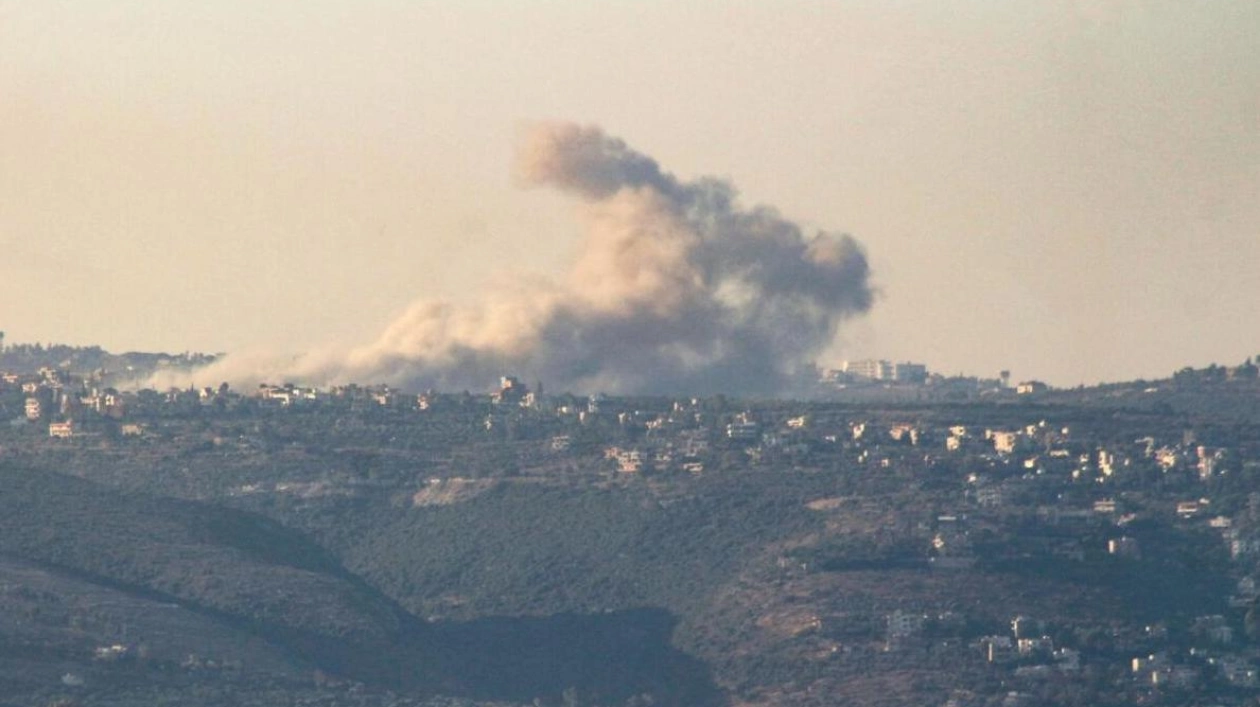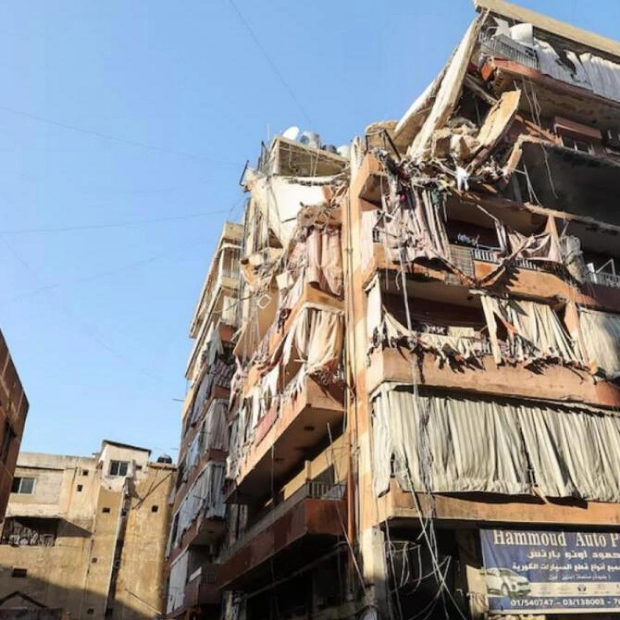Israeli air strikes targeted a Lebanese association linked to Hezbollah, accusing it on Monday of funding the group's weapons, as the scope of its raids expanded beyond military targets. In southern Lebanon, Israeli strikes hit Al-Qard Al-Hassan branches in the cities of Nabatiyeh and Tyre overnight, according to the official National News Agency (NNA).
On Monday, the Israeli military stated it had conducted a series of strikes against "dozens of facilities and sites" used by Hezbollah in Beirut and southern Lebanon, including branches of the financial institution. These strikes signify an expansion of Israel's nearly month-long conflict with Hezbollah, as it aims to weaken the group's operational funding capabilities.
Israel accuses Al-Qard Al-Hassan of funding "Hezbollah's terror activities", including the procurement of weapons and payments to militants. Hezbollah has established a loyal support base in Shiite Muslim areas of Lebanon by offering protection, health, education, and financial services in a state plagued by sectarianism and corruption.
Al-Qard Al-Hassan, a Hezbollah-linked financial firm, provides micro-credit in a country where the traditional banking system collapsed five years ago amid a severe economic crisis. The US sanctions this firm, accusing Hezbollah of using it as a cover to conceal its financial operations and gain access to the international financial system.
On Sunday, 11 strikes hit Beirut's southern suburbs, according to NNA, many targeting Al-Qard Al-Hassan. At the site of a flattened building housing a branch of Al-Qard Al-Hassan in south Beirut, AFP photographers observed a heap of concrete and twisted metal. Just a month ago, the bustling streets of south Beirut were filled with traffic, families, and youths in cafes; now, silence prevails in the abandoned Hezbollah stronghold.
Other strikes affected Al-Qard al-Hassan branches in Lebanon's eastern Bekaa Valley and the country's south. The NNA also reported a strike near Beirut's airport, a key entry point for humanitarian aid and a major evacuation hub for those fleeing the conflict.
According to the Israeli military, dozens of projectiles were launched across the border Monday morning. Israeli Defence Minister Yoav Gallant informed troops Sunday that the military was intensifying strikes on Hezbollah in Lebanon, destroying locations the group "planned to use as launchpads for attacks against Israel".
Israel shifted its focus to Lebanon late last month while engaged in a devastating war in Gaza, sparked by the October 7, 2023 attack by Hezbollah ally Hamas. The deadliest attack in Israeli history resulted in the deaths of 1,206 people, mostly civilians, according to an AFP tally based on official Israeli figures.
In support of its Palestinian ally, Hezbollah initiated low-intensity strikes on Israel in October last year, forcing tens of thousands to flee their homes. Israel launched a massive air campaign targeting Hezbollah strongholds across Lebanon and sent ground troops across the border on October 30. It has vowed to continue fighting in Lebanon until Israelis displaced by cross-border fire can return home.
The war has claimed 1,470 lives in Lebanon, according to an AFP tally of health ministry figures, though the actual toll is likely higher. The conflict has placed the United Nations peacekeeping force, UNIFIL, on the frontline, with the Blue Helmets accusing Israel of attacking their members multiple times in recent weeks.
UNIFIL reported that the Israeli army had "deliberately" damaged one of its positions on Sunday, the latest in a series of incidents that have sparked international condemnation. Israeli Foreign Minister Israel Katz stated that Israel has "no intention" of harming the peacekeepers.
US special envoy Amos Hochstein was in Lebanon on Monday to meet with Lebanon's prime minister, who is advocating for a ceasefire, and Hezbollah-allied parliament speaker Nabih Berri, who is negotiating on behalf of the militants.
In northern Gaza, the civil defence agency reported that an Israeli air strike on a residential area killed 73 Palestinians in Beit Lahia on Saturday. Israel, determined to prevent Hamas militants from regrouping in the northern Palestinian territory, launched a major air and ground assault on October 6 this year.
Tens of thousands are estimated to have fled the assault, and according to the UN agency for Palestinian refugees, UNRWA, around 400,000 people were trapped in northern Gaza last week. "There were smoke bombs and sound grenades, and we fled with our children, without taking anything with us -- no milk, no diapers, nothing essential for life, no blankets, no mattresses," said Shaima Naseer, who fled Beit Lahia with her children.
The Israeli military claimed it struck a "Hamas terror target" in Beit Lahia, stating that the toll figures provided by Gaza authorities "do not align" with the information it possessed. The Jeddah-based Organisation of Islamic Cooperation "condemned the strike in the strongest terms", describing Israel's actions in Gaza as a "stain on the conscience of humanity".
Jordan's Foreign Minister Ayman Safadi, posting on X, accused the international community of granting "impunity" to Israel's government, which "is brutally terrorising the whole population to push them out of their homeland". Israel's campaign in Gaza has resulted in the deaths of 42,603 people, a majority of whom were civilians, according to data from the health ministry in the Hamas-run territory, figures considered reliable by the UN.
Source link: https://www.khaleejtimes.com






